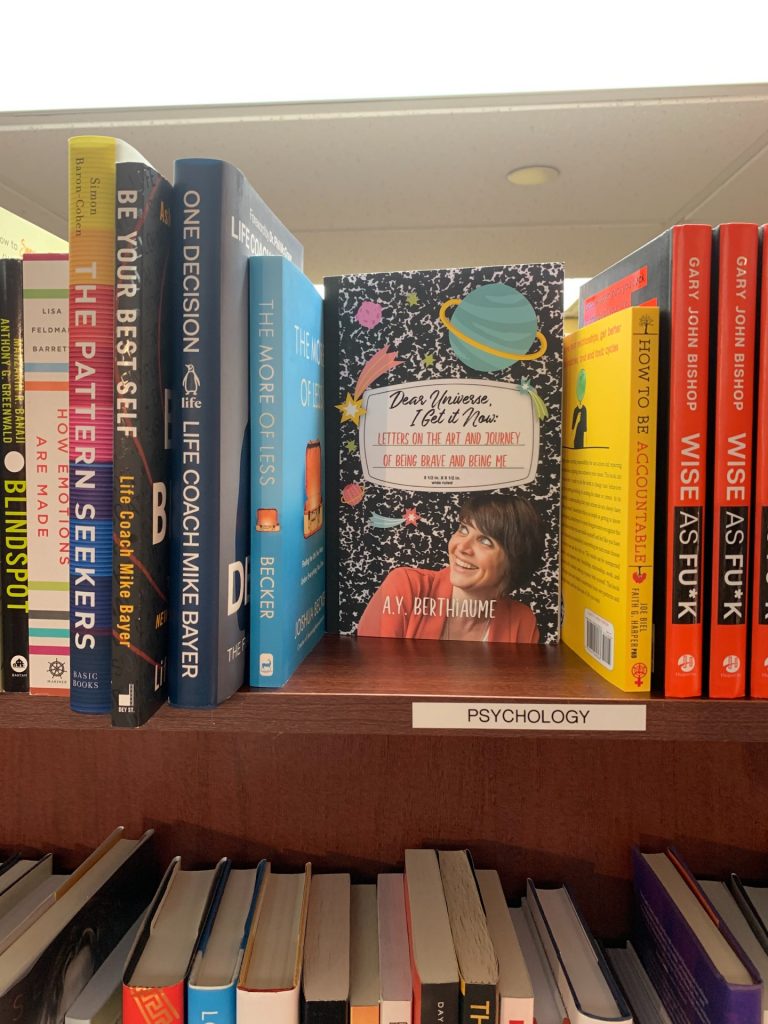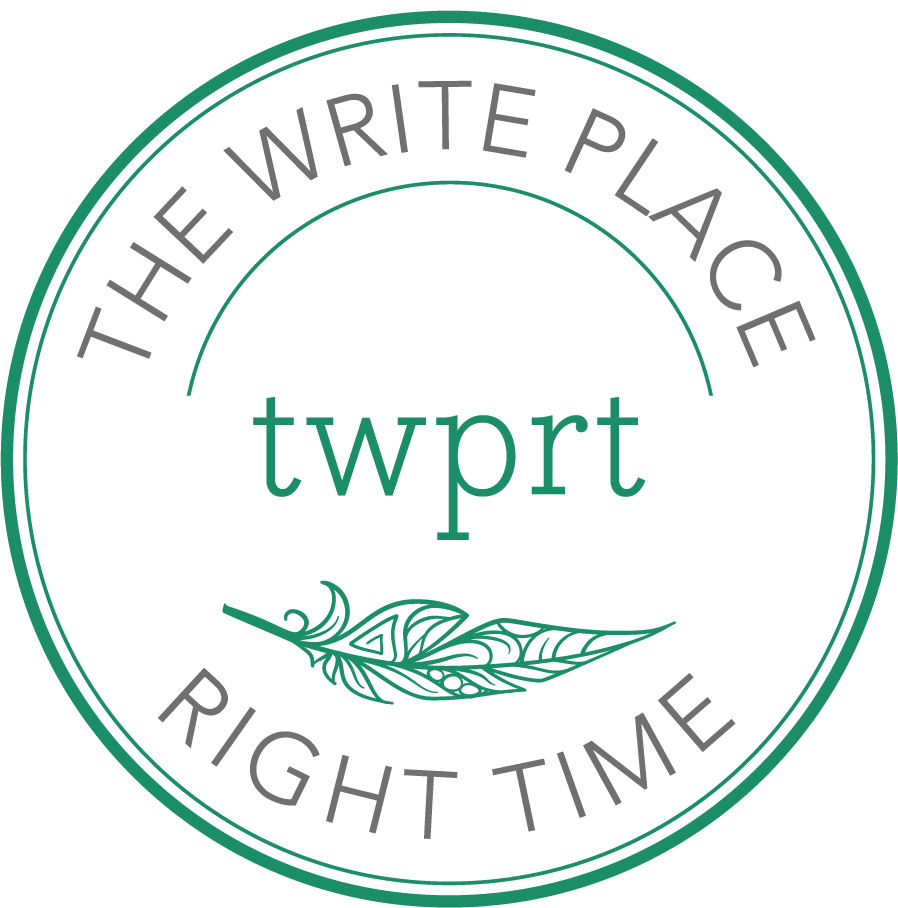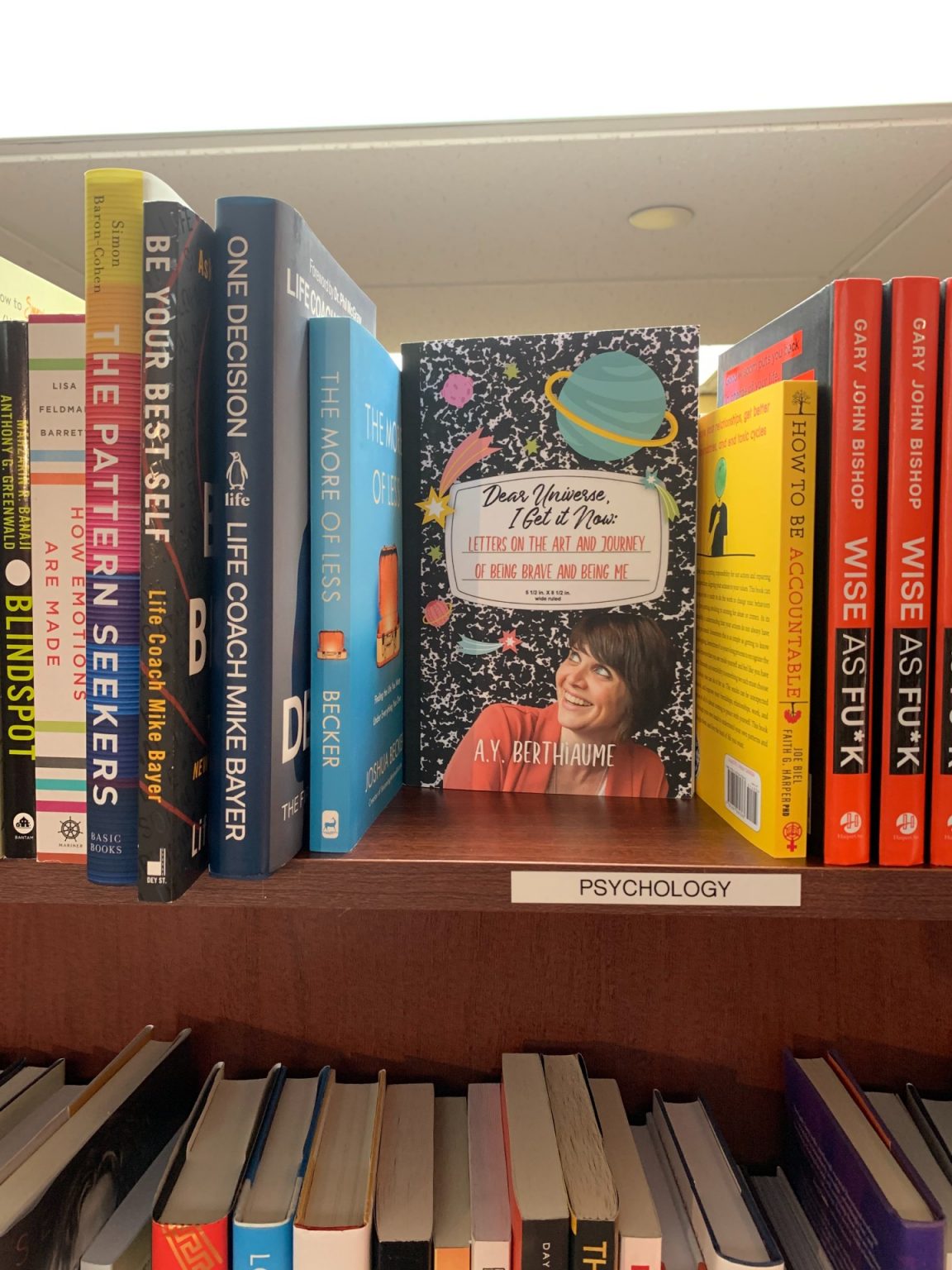This November marks the third anniversary of my very first memoir, Dear Universe, I Get it Now. I have so much pride and love for this book. Perhaps because it's my first, perhaps because it was the actualization of a lifelong dream, perhaps because it also seemed to mark the organic and pivotal moment that I leaned all the way into becoming a book coach and a ghostwriter. Dear Universe, I Get it Now made me more confident in my own writing, my own voice, my own understanding of the writing process and of publishing and marketing. That confidence and all of the writing lessons I’ve learned from the experience of bringing my own book into the world positioned me differently for my clients in their own book-writing endeavors.

Since that book has been published, I've gone on to help more than a dozen other people across the globe work on their books. Not all of them have made it to publication yet, but they're well on their way. Every single book that I've helped usher into the world has felt–I imagine–like a midwife guiding mothers through the labor and delivery process until that beautiful babe takes its first breath on the outside. No (book) delivery has been the same. No mother (author) and no pregnancy (book development) has been identical.
Every single book has been a gift and every single experience has offered so many lessons on writing that make me stronger in my craft and more helpful to my clients book after book. And because November is always a time when I think about what I'm grateful for, what I've learned, what I would like to give back, I'm using this month's post to cover some of those writing lessons learned. All in the spirit of being so grateful for what I now know.
I have not put these lessons in order of any importance or significance. Quite frankly, all of the lessons are relevant in the right context. Take what serves, leave the rest.
Impostor syndrome happens to all of us, and with any book project.
It never fails. No matter who I work with or what genre or how many years of experience they have in their topic, every single author, at some point, asks themselves, “Am I qualified to write [insert topic]?” I’m always astounded because I’m an outside observer who sees their brilliance, experience, and light. But, their brain does the same thing that mine and yours does. It doubts. It fears risk. And tries to keep us from doing something scary and outside of our comfort zone. Our job is to figure out how to move forward despite that.
We all seem to fear being seen while at the same time having that be the very thing that we all seem to need.

Even when people push through the impostor syndrome and keep going, they still have fear in what they’re saying and what they’re sharing. Usually that fear is related to being seen. A book puts them out there. Front and center. And if they’re working on memoir, it’s pushing them into the spotlight, sharing their best and worst of times. This is not for the faint of heart. The irony of this, of course, is that on some level, they want to be seen. They’re looking for validation and acknowledgement of their experience, while also being terrified of that very thing. This is a writing lesson in holding space for the “and/both” rather than the “either/or.” We can feel both things–fear and need–simultaneously. The human experience is a nuanced thing and so is writing a book. We need to rise to the challenge of feeling our feeling.
A book has its own timing and pace.
It never fails when someone tries to push their own agenda, or force their own deadline–the book inevitably has other plans. And yet, at the same time, the book always seems to come exactly when it’s supposed to. The writing lesson here is one of trust. Trust in a higher power or higher energy or vibration that you can't see, know or understand. It's good to set a time goal, but know that ultimately at the end of the day, your book has way more control than you do as to when it’s ready. Trust what it tells you. Trust the process. And always remember, if the world has already waited this long, it can wait a little longer.
Strong foundation, strong finish.
How many times have I been tapped after somebody has already tried to work on their manuscript, maybe already has several pages, and honestly, it's all kinds of wrong. Usually because they sat down a “wung it.” It puts us in a position of having to go back to setting up an outline. Back to understanding what we're doing. Back to figuring out who we're trying to speak to. When that happens, it's like doing twice as much work. You need to have some sort of plan before you draft. It will save you time in the long run. It might not be sexy, it might not be whimsical, it might not feel fun. But…it will likely mean a better final product.
Waiting for the muse is not a winning strategy.
While it would be nice to have the creative fairy tap us on the shoulder every day, that's not really realistic. The idea that we'll write when we feel like writing or the idea that we'll write when the muse guides us, is just short of an excuse to not write and to stay small. If you dig deeply into just waiting for the muse, maybe there's a little self-sabotage going on there. A little fear perhaps of getting this thing done and putting yourself out there. Because the writing lesson that I know to be true from all of the books I've worked on, whether I'm ghosting or I'm coaching, you have to show up regularly to get that sucker done. It doesn't matter if there's a day that you don't feel like writing– you have to show up. You've got to sit your butt down. You got to punch out some words. The muse is not going to get your book done. The muse can be helpful at times if it cares to show up, but you've got to figure out how to write without it.
Writing is a practice, not all magic.
While there is a craft to writing, which sounds magical, and to some extent it is, there is also a practice of writing and practice means consistency. A practice means pushing through when you don't feel like it. A practice means showing up to strengthen those muscles and work on those skills. Practice is in some ways the opposite of magic.

There is no right way to draft a book.
There is a right way to bring a book all the way to market, meaning there are steps you don't want to miss. You don't want to skip over editing, for example, lots of it. But there is no right way to draft. Some people prefer longer time blocks. Some people prefer shorter sprints. Some people write by hand first and then bring it over to digital. It's about what works for you. There are no shortcuts or hacks or one size fits all approaches to get the book written. You've got to know yourself, how you work, and what your schedule allows. You’ve got to know what keeps you motivated and what keeps you stuck. You've got to know what's going to feel realistic in order to get it done.
If you're not a hell yes, then it's a no.
I can't tell you how many times people have started the conversation with me feeling like they've got an idea, but ultimately decide it's not the right time for them. I couldn't agree more. If you can't a hundred percent say, “Now is the time. I'm totally going after this. I'm 110% in…” then wait. Wait until you get tapped harder. Wait until the book cannot wait any longer. Trust me, you will know. But if you have any doubt about the timing and about whether or not now is the right time for you to do this thing, then it's probably not the right time. (That said, don't use, “Oh, I'm too busy…” Or, “Someday, I’ll get to it…” for too long. There's a difference between now is truly not the right time and simply putting it off. You’ll know the difference.)
You don't have to be a writer to become an author.
These are not mutually exclusive terms. A lot of people who consider themselves writers are people who have been writing their whole life. They've dabbled in it. They've kept journals. They've studied it on some level by self-study or in school. They play around with different genres. They participate in critique groups. They go to writing conferences. But there are plenty of other people who don't classify themselves as writers, who become authors. People who have something specific that they want to say and share with the world. People who are an expert in their field. People whose business coach has told them, now is the time to put together their book because it's an elevated business card. There are plenty of people out there who author a book who would not classify themselves as writers. You do not have to be a writer to be an author.
You do not have to be a writer to develop the skill of writing or to work with a book coach or a ghostwriter, and you can still have a really great book even if you don't classify yourself as a writer and you've never done it before. Here’s a writing lesson. Writing can be learned. Does everybody have the same talent for it? No. Will some people's learning curve be steeper? Yes. Should some maybe hire a ghostwriter and not bother with actually being the one? Yes. But whether or not you're a strong writer or you've penned a single word, doesn't make you less of an author. Being an author is to own your story and own your content. How those words or that story gets pulled together and put onto the page doesn't discredit you as the owner of your message or story.
Writing might be done in isolation, but bringing a book into the world is a community event.
 If you're penning the manuscript yourself, then you're going to spend some time on your own getting those words down onto the page. It's unlikely that somebody will sit there with you while you write, holding your hand or holding the pen or writing down what you're dictating to them (unless you’re working with a ghostwriter.) Writing is one piece of the entire lifecycle of bringing a book all the way to publication. At some point, you're going to need a whole bunch of other people to get that book across the finish line. From your first set of sample readers, your editors, your cover designers and type setters, your publishers, your virtual author assistants, your publicists, your marketing specialists…You name it. There is an entire choir of people that need to help your book sing loudly into the world so it can be heard.
If you're penning the manuscript yourself, then you're going to spend some time on your own getting those words down onto the page. It's unlikely that somebody will sit there with you while you write, holding your hand or holding the pen or writing down what you're dictating to them (unless you’re working with a ghostwriter.) Writing is one piece of the entire lifecycle of bringing a book all the way to publication. At some point, you're going to need a whole bunch of other people to get that book across the finish line. From your first set of sample readers, your editors, your cover designers and type setters, your publishers, your virtual author assistants, your publicists, your marketing specialists…You name it. There is an entire choir of people that need to help your book sing loudly into the world so it can be heard.
Having accountability can truly make or break the whole thing.
If I look at the clients who have gone on to publish or are going to go on to publish in the coming year versus the clients whose books are nowhere near ready–probably the biggest difference between them is accountability. The people who remain working with coaches through the process have somebody to show up for other than themselves. It's harder to push a project under the rug when you're beholden to somebody else's schedule and time. There’s an energetic difference when you are showing up for someone who you’ve paid to look at your book and keep you moving. When you take away that support and you no longer have it, you can seem motivated to produce this thing, but external noise and the world outside will all come trickling in and likely throw you off balance.
You end up with lots of frequent starts and stops where you aren’t writing regularly and it's taking you twice as long for the manuscript to get finished and onto the next phase of the journey. Even if you cannot afford a coach, having some sort of accountability partner or writing group or something that's more budget friendly (but works to hold you accountable) would do wonders to keep you going, keep you motivated, keep you on task, and get that first draft done. Because once you have that first draft done, you'll have that win. You'll feel that momentum. You'll be able to go on to revising, be able to see how this whole thing looks, and when you can see how this whole thing comes together, you'll be more motivated to get it done.
Writing lessons don’t have to be learned alone.
Honestly, the list of things that I've learned on this journey the last few years as a book coach and ghostwriter are astronomical. There are things that are not even coming to mind as I work on this post because there are so many things that I learn from each and every project.
Hopefully you found something among the writing lessons noted here that resonates. Something that will help you on your own path to writing a book. But I know by being in this field that for those of us who are doing this for the very first time, we need encouragement. We need cheerleading. We need support and guidance. We need a sounding board.
If you're looking to kick your writing project a little bit more into high gear and to speak with a professional for a few minutes to make sure that your idea is sound, your motivation is strong enough, your timing is right, whatever it is…I invite you to join me for a 20 minute story stroll. We can dive into your book, your story, and your writing path for a few minutes, and determine your next best step forward.

